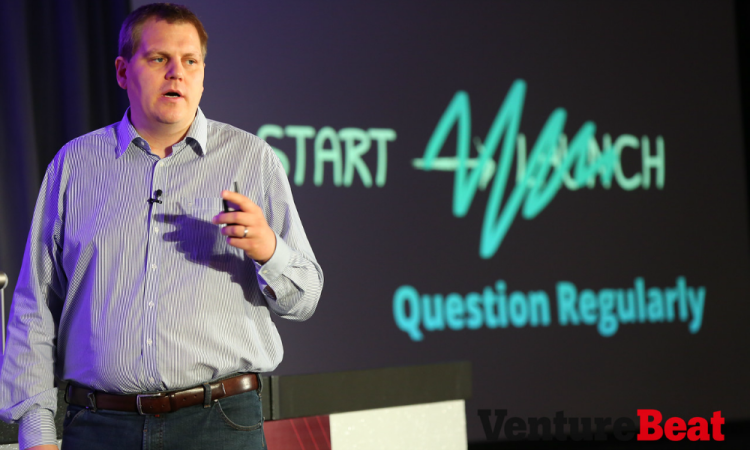SAN FRANCISCO — In order to create a hit, you have to kill a game. Or dozens of games, according to Jens Begemman, the CEO and founder of Berlin-based mobile game developer Wooga. In a talk at GamesBeat 2014, Begemman revealed how he and his team learned to embrace killing a project, even good projects, if they weren’t great projects.
“We needed to change our approach. We needed to change the way we worked,” Begemann said, citing four of five titles Wooga developed that went on to flop after launch. “For some of these games, we kind of knew a year before launch, ‘This is good, but it won’t become a hit.’ But because stopping was a taboo, we didn’t stop.”
VentureBeat is studying mobile app analytics solutions.
Share your insights, and we’ll share all the resulting data with you.
To refocus on fostering a culture that creates hits, Begemann and Wooga made the aptly named “Hit Filter” system, in which around they prototype 40 games each year. Of those 40 games, only 10 ever make it to production, where they’re further whittled down to seven when deciding what to launch to gauge user retention as a benchmark. Wooga then chooses three of those to launch globally, with full support — the studio’s expectations are two of them will become hits.
“Three years ago, stopping was a taboo,” Begemann said. “Now, stopping for us is normal. Every couple of months we ask ourselves, ‘Should we continue working on this game?’ It has to be great. It has to be amazing.”
But ending the life of so many projects means nearly every one of the 250 Wooga staff members has had to watch a project they were passionate about unceremoniously shuttered before coming to market. As Begemann says, “The key question is how do you keep the team motivated?” The answer lies in putting each team in charge of their project’s fate.
“For every game, we do a review meeting. The lead for the team — the product leads — have the last word. What that does is it changes the meeting. They can decide on their own — everybody puts up their voice. And just last week I was overruled,” Begemann said. “I was in favor of stopping and the product team decided to continue.”
To that regard, Wooga shares the lessons learned from each ended project in quick meetings, to avoid pitfalls and provide a sense of greater good for the team members. “The most obvious benefit of that is the things you do wrong in one game, you avoid doing the same mistake in another game,” he said.
“But the overlooked benefit of [the meetings] is that it keeps the team motivated. Because the team then knows what they did wasn’t for the trash, what they did was something that’s saved. It’s kept for future teams to work on and there was some reason, some benefit [for] working on that project. The last half-year of their life wasn’t for the trash.”
VentureBeat's mission is to be a digital town square for technical decision-makers to gain knowledge about transformative enterprise technology and transact. Learn More

